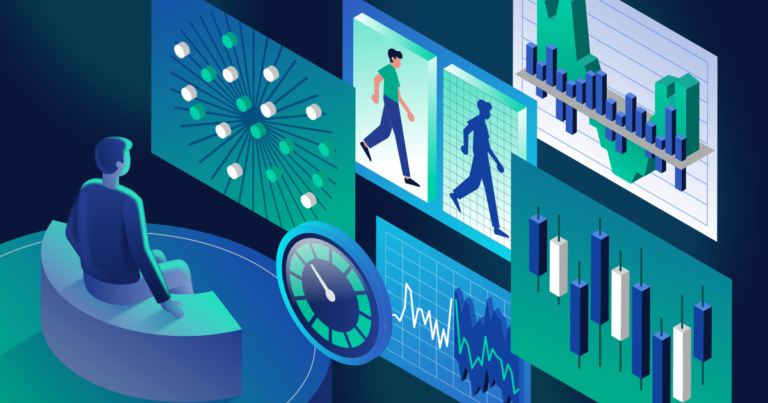Core Skills Required to Become A Data or Business Analyst

Data and business analysts are highly in-demand and well-compensated roles worldwide. Both roles earn over $80k on average also making it a highly competitive role. As an integral part of modern-day businesses, employers are always looking out for the best talent. This is also why in order to secure any of these roles, you need these core skills.
Many enthusiasts attract high-paying employers and grow their careers by acquiring the right data and business analysis skills and so can you. But choosing the right data and business analysis skills is no walk in the park. There is a ton of information available, so selecting the most relevant skills is overwhelming.
So, in this article, we won’t discuss a list of nice-to-have skills. Instead, we’ll look at the most critical skills you need to become a successful data and business analyst to reach your career goals.
Let’s get right into it.
Data Analysts vs. Business Analysts
As a data or business analyst enthusiast, you probably know what data and business analysis are about. However, since these two terms have very similar roles, it may be a bit daunting to differentiate between them. So, let’s simplify their relationships by highlighting their responsibilities.
First, while a data analyst gathers, analyzes, and visualizes data, a business analyst identifies a business’s problems, possibilities, and solutions. A data analyst makes data easier to understand and work with through analysis, cleaning, and visualization. A business analyst focuses on the business’s challenges and recommends solutions.
These roles coexist effectively because one needs the other to thrive. A business analyst needs simplified, accurate, and relevant data analysis to identify problems and help an organization make the right decisions. A data analyst needs the implementation of the analyzed data to help the organization achieve expected outcomes.
These roles are so interrelated that they are used interchangeably. Their close relationship also means employers seek specific, similar skills for both roles. Let’s examine these skills and why they are so important below.
Top data and business analysts skills that can get you hired
These eight critical skills will help you become an expert in your field, attract your dream positions, and advance your career. Whether you are just starting or improving your existing skills as a data or business analyst, these skills are a must-have.
- Domain knowledge
To become an expert in the field, you must equip yourself with relevant details about terms, concepts, systems, data, etc. You’ll also need to know specific information about the industry and the companies you intend to work for.
The more knowledge you possess, the better prepared you are to execute your roles successfully. This is why employers want to know how knowledgeable you are about the industry and your role. So, you must have adequate domain knowledge of data or business analysis to show employers you have what it takes.
To do this, gather the necessary knowledge about data and business analysis. Research basic and critical concepts. Learn industry terms. Take courses and harness helpful materials online. Ask questions from experts to understand how the industry operates and stay in the loop on trends.
Possessing sufficient domain knowledge sets you up for success in the industry. You know precisely how things work, so you avoid critical mistakes and take the right steps toward advancing your career. You are also knowledgeable about your deliverables. As a result, you present yourself as better qualified for positions.
So, start with this basic skill if you plan to dive into data and business analysis. Doing this establishes a solid foundation to build the rest of your skills.
- Problem-solving
What’s business and data analysis if you can’t proffer solutions to organizational challenges or kick out the bugs that come your way?
The core of data and business analysis thrives on problem-solving. You will run into roadblocks, bugs, and complex situations every day. You may need to create innovative solutions to a critical problem, come up with accurate data analysis at the last minute, or fix inconsistencies in the data collection process. Your problem-solving abilities will help you troubleshoot these situations and deliver exceptionally in your role.
Employers know how vital problem-solving skills are for data and business analysis, so they constantly look for candidates with these abilities. Possessing this skill ultimately gives you an edge over other applicants, increasing your chances of getting hired.
So, improve your problem-solving skills. Evaluate how experts solve challenges to gain insight into how it works. Create hypothetical data and business analysis situations and provide solutions. Doing this sharpens your problem-solving skills. Consequently, you know just the right steps to take when these situations present themselves in real life.
- Microsoft Excel
Business and data analysts use Microsoft Excel to analyze and report data analysis. You can create pivot tables to summarize business reports and discuss new findings. You can also make budget analyses, predict the results of a new project, generate revenue growth, and create dynamic reports.
Microsoft Excel is an excellent platform for businesses to have a bird-eye view of organizational reports. This includes data analysis, budget analysis, sales predictions, customer forecasts, etc.
Therefore, understanding how Microsoft Excel works allow you to interpret data comprehensively. You can simplify and represent complex data visually. Your audience will also grasp your analysis quickly.
Although there are many sophisticated presentation tools for business and data analysts, Microsoft Excel remains top on the list for many organizations for data entry, management, and analysis. So, boost your proficiency in Microsoft Excel to enhance your qualifications for top data and business analyst roles.
- SQL
Structured Query Language (SQL) is the standard language for database interaction. Business and data analysts use SQL to organize, update and modify databases. They also use it to prepare presentations and make important business decisions.
SQL is one of the most essential technical skills to acquire as an analyst. You need it to access the companies’ database, manage, and communicate with databases. This is why it’s among the top skills organizations want to see when hiring qualified candidates. In fact, many data analyst interviews are accompanied by SQL questions.
So, learn SQL to effectively extract, analyze and manage the data stored in databases. Obtaining an adequate understanding of SQL allows you to answer questions with data. You will also know how to make complex analyses and interpret data clearly. Your SQL knowledge lets you perform complex activities as an analyst. So, if you become a data or business analyst, harness resources to learn SQL.
- Probability and statistics
Understanding probability and statistics are crucial skills to adopt if you plan to advance your data analysis process. You can collect, analyze, interpret, and present data with basic probability and statistics knowledge. You can also identify different patterns and trends and produce accurate and credible results with your analysis.
You can identify fallacies and errors in your analysis, so your organization can make major business decisions based on your conclusions.
Savvy business owners know how critical it is to work with factual data. So, they consider business and data analysts with adequate knowledge of probability and statistics during the screening and application process.
The required level of statistics and probability understanding depends on your organizational needs. However, we recommend acquiring sufficient knowledge of these concepts to boost your qualifications during recruitment.
- Data management
Data management is a basic required skill for data and business analysts. You must be able to gather, organize, store and secure data successfully to be a data and business analyst.
So, it is critical to acquire an in-depth understanding of data management and how it works. Understanding these basics will help you collect and communicate with databases effectively, whether it’s in the cloud or physical environments.
Do this by obtaining foundational information about data management. Improve your technical skills and work on data management projects. You can also obtain professional certifications to gain a deeper advanced understanding of data management practices.
Data management is crucial to data and business management positions. So, if you want to become a data or business analyst, understanding data management practices is among the top skills to include in your skill set.
- Data analysis
After sourcing your data, you must be able to make sense of it. So, it’s never just about data collection; analyzing and interpreting the data you’ve gathered is essential to being a data or business analyst.
You will need to explain your findings to stakeholders and the rest of the team. Your role also requires you to interpret and interact with several databases to draw conclusions, identify gaps, and proffer solutions.
Since data analysis is a prominent function of any business and data analyst role, you must possess unique analytical skills to stand out.
So, learn how to review data to make the best conclusions, identify potential problems, and allow your organization to combat them proactively. When you do this, you become an invaluable asset to the team and employer.
- Communication
Communication is vital to delivering results as a data and business analyst. After the data collection and interpretation process, you will need to create a dashboard and reports to discuss the outcome of your findings.
Without proper communication skills, your data analysis interpretation process will be flawed. You will miscommunicate details, and critical information will be lost in translation.
Avoiding these requires you to hone your communication skills. So, learn how to simplify your report and narrate the process compellingly. Know how to build easy-to-understand dashboards and reports, whether you are creating a simple chart or a complex dashboard.
Your goal is to eliminate all technical barriers so that your audience can access your report easily. Employers want to know if you can eliminate technicality and speak in your audience’s language when interpreting data. They also look out for your ability to communicate and keep the team updated when collaborating on projects.
So, acquire relevant communication skills to be better suited for data and business analyst roles. Make your message easy to consume, use relatable terms, and focus on clarity. Finally, learn how to harness communication tools to automate collaboration.
Become a data and business analyst expert
Although taking on data and business analyst roles can be exciting for enthusiasts, it gets challenging along the way when trying to stand out with the right skill set. So, in this article, we reviewed eight significant data and business analyst roles you need for a great head start. By adopting these skills, you can dive successfully into the data and business analysis roles as a beginner in the industry.
Let us know what you think! Would you agree? Would you add or highlight any other important skills such as Python, R or Tableau?



